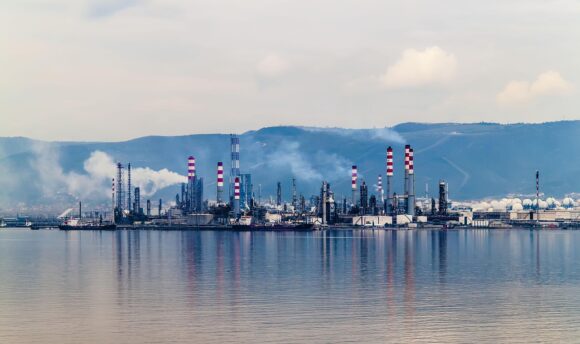London, 5 September 2023, first published in The Insurer – Lloyd’s of London, one of the world’s largest insurers of fossil fuels, has said it will comment more expansively on ESG guidance in September 2023.
It is anticipated to be a further distancing from Lloyd’s first ESG policy, published in December 2020, and another textbook example of greenwashing along the lines of Lloyd’s second ESG report, published in 2021.
Back in 2020, Lloyd’s chairman Bruce Carnegie-Brown proudly announced, amongst other commitments, that managing agents “will be asked to provide no new insurance cover in respect of thermal coal-fired power plants, thermal coal mines, oil sands or new Arctic energy exploration activities from 1 January 2022”.
Since then, Lloyd’s has striven to erase all traces of those commitments. No reference was made to them in its second ESG report, while the May 2023 market oversight plan stated that it will not be “mandating or restricting the underwriting decisions of the market, in any sector” and that it will be up to managing agents to decide what they insure.
Yet even while distancing itself from its former fossil fuel commitments, Lloyd’s says it is “committed to lead the market to a net-zero underwriting position”.
Easy words to write, but where is the action behind them?
Lloyd’s continues to be a leading insurer of coal mines in the US and tar sands in Canada, and has been revealed as the leading insurer of North Sea oil expansion, including in the Arctic. Not the work of a net-zero leader.
Lloyd’s has even refused to rule out insuring even the most egregious coal, oil and gas projects, regardless of the environmental damage and human rights breaches associated with them, such as the East African Crude Oil Pipeline and oil exploration in the Democratic Republic of Congo, despite many insurers publicly ruling out underwriting these.
Lloyd’s both hides behind its managing agents and syndicates and covers up for them. It says it cannot direct its managing agents’ underwriting policies – however, as the world’s leading insurance marketplace, it has the power to define the policy limits of those who operate within it.
Lloyd’s justification for its lack of action crumbles further in relation to Lloyd’s Europe, an insurance company in its own right and one which Lloyd’s has control over. So, what are Lloyd’s Europe ESG underwriting policies?
Its name goes on the insurance certificates of dirty fossil fuel projects, thereby hiding the names of the managing agents and syndicates who are providing the insurance. Lloyd’s argument that it has no ability to influence what gets insured in its name does not hold water.
Despite this, a report earlier this year by Reclaim Finance documented that around half of Lloyd’s top 20 managing agents have adopted some significant, if far from adequate, fossil fuel exclusions. However, the other half have not adopted any substantive ESG underwriting policy.
This lack of action has attracted the attention of potential Lloyd’s investors and the specialist managing agencies that advise them on their investments at Lloyd’s. Hampden Capital, for example, says it no longer recommends that investors place their capital with syndicates still offering new insurance cover for coal-fired power plants, coal mines, oil sands or new Arctic energy exploration.
Neal and Carnegie-Brown have proven to be deaf to the calls of moral reasoning, and blind to the business and financial risks of allowing ongoing underwriting of new fossil fuel projects, while the industry simultaneously faces record climate-related losses.
Can investor pressure finally push Lloyd’s to take the climate crisis seriously?
Will Lloyd’s surprise us in September by:
- Re-committing to its original ESG demands on managing agents?
- Recommending that managing agents stop insuring fossil fuel expansion projects?
- Committing Lloyd’s Insurance Company S.A to adopt more robust policies like those of some of its industry peers?
- Publishing a report detailing the current policies of all managing agents?
Or will Lloyd’s continue to put all of our futures at risk by persistently refusing to acknowledge the urgent need for restrictive policies on fossil fuel underwriting, and instead opt for yet more ESG hot air?



